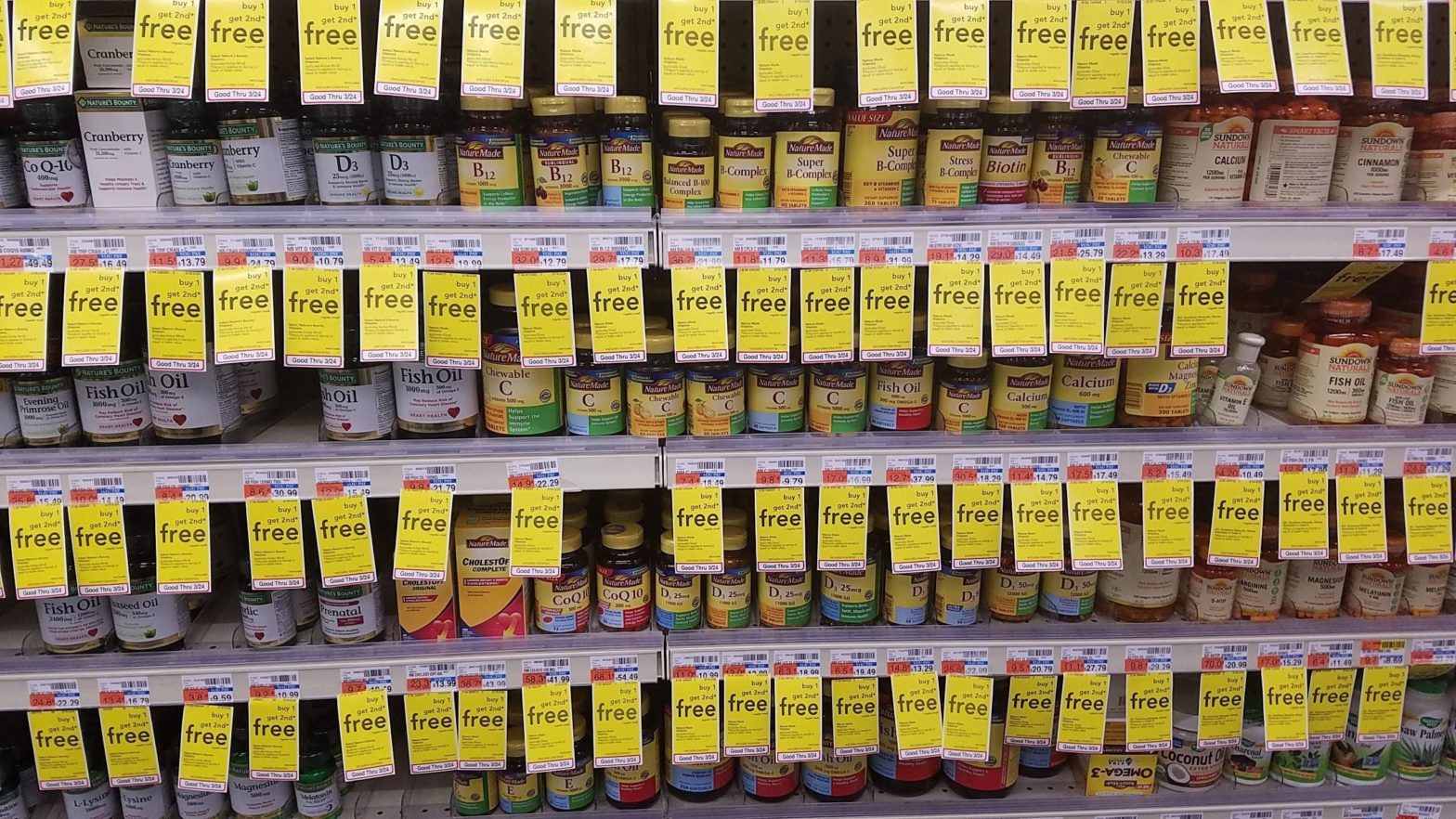![[Special to the Press Gazette]](http://127.0.0.1/wordpress/wp-content/uploads/2022/01/ghows-DA-6a0c085b-7c48-1ae2-e053-0100007f3572-df2e30e5.jpeg)
When she was a young physician, Dr. Martha Gulati noticed that many of her mentors were prescribing vitamin E and folic acid to patients. Preliminary studies in the early 1990s had linked both supplements to a lower risk of heart disease.
She urged her father to pop the pills as well: "Dad, you should be on these vitamins, because every cardiologist is taking them or putting their patients on (them)," recalled Gulati, now chief of cardiology for the University of Arizona College of Medicine-Phoenix.
But just a few years later, she found herself reversing course, after rigorous clinical trials found neither vitamin E nor folic acid supplements did anything to protect the heart. Even worse, studies linked high-dose vitamin E to a higher risk of heart failure, prostate cancer and death from any cause.
″‘You might want to stop taking (these),’" Gulati told her father.
More than half of Americans take vitamin supplements, including 68 percent of those age 65 and older, according to a 2013 Gallup poll. Among older adults, 29 percent take four or more supplements of any kind, according to a Journal of Nutrition study published in 2017.
Often, preliminary studies fuel irrational exuberance about a promising dietary supplement, leading millions of people to buy in to the trend. Many never stop. They continue even though more rigorous studies — which can take many years to complete — almost never find that vitamins prevent disease, and in some cases cause harm.
"The enthusiasm does tend to outpace the evidence," said Dr. JoAnn Manson, chief of preventive medicine at Boston’s Brigham and Women’s Hospital.
There’s no conclusive evidence that dietary supplements prevent chronic disease in the average American, Manson said. And while a handful of vitamin and mineral studies have had positive results, those findings haven’t been strong enough to recommend supplements to the general U.S. public, she said.
The National Institutes of Health has spent more than $2.4 billion since 1999 studying vitamins and minerals. Yet for "all the research we’ve done, we don’t have much to show for it," said Dr. Barnett Kramer, director of cancer prevention at the National Cancer Institute.
A big part of the problem, Kramer said, could be that much nutrition research has been based on faulty assumptions, including the notion that people need more vitamins and minerals than a typical diet provides; that megadoses are always safe; and that scientists can boil down the benefits of vegetables like broccoli into a daily pill.
Vitamin-rich foods can cure diseases related to vitamin deficiency. Oranges and limes were famously shown to prevent scurvy in vitamin-deprived 18th-century sailors. And research has long shown that populations that eat a lot of fruits and vegetables tend to be healthier than others.
But when researchers tried to deliver the key ingredients of a healthy diet in a capsule, Kramer said, those efforts nearly always failed.
It’s possible that the chemicals in the fruits and vegetables on your plate work together in ways that scientists don’t fully understand — and which can’t be replicated in a tablet, said Marjorie McCullough, strategic director of nutritional epidemiology for the American Cancer Society.
More important, perhaps, is that most Americans get plenty of the essentials, anyway. Although the Western diet has a lot of problems — too much sodium, sugar, saturated fat and calories, in general — it’s not short on vitamins, said Alice Lichtenstein, a professor at the Friedman School of Nutrition Science and Policy at Tufts University.
And although there are more than 90,000 dietary supplements from which to choose, federal health agencies and advisers still recommend that Americans meet their nutritional needs with food, especially fruits and vegetables.
Also, American food is highly fortified — with vitamin D in milk, iodine in salt, B vitamins in flour, even calcium in some brands of orange juice.
Without even realizing it, someone who eats a typical lunch or breakfast "is essentially eating a multivitamin," said journalist Catherine Price, author of "Vitamania: How Vitamins Revolutionized the Way We Think About Food."
That can make studying vitamins even more complicated, Price said. Researchers may have trouble finding a true control group, with no exposure to supplemental vitamins. If everyone in a study is consuming fortified food, vitamins may appear less effective.
The body naturally regulates the levels of many nutrients, such as vitamin C and many B vitamins, Kramer said, by excreting what it doesn’t need in urine. He added: "It’s hard to avoid getting the full range of vitamins."
Not all experts agree. Dr. Walter Willett, a professor at the Harvard T.H. Chan School of Public Health, says it’s reasonable to take a daily multivitamin "for insurance." Willett said that clinical trials underestimate supplements’ true benefits because they aren’t long enough, often lasting five to 10 years. It could take decades to notice a lower rate of cancer or heart disease in vitamin takers, he said.
However, people who take vitamins tend to be healthier, wealthier and better educated than those who don’t, Kramer said. They are probably less likely to succumb to heart disease or cancer, whether they take supplements or not. That can skew research results, making vitamin pills seem more effective than they really are.
This article originally appeared on Santa Rosa Press Gazette: Older americans are hooked on vitamins despite scarce evidence they work
